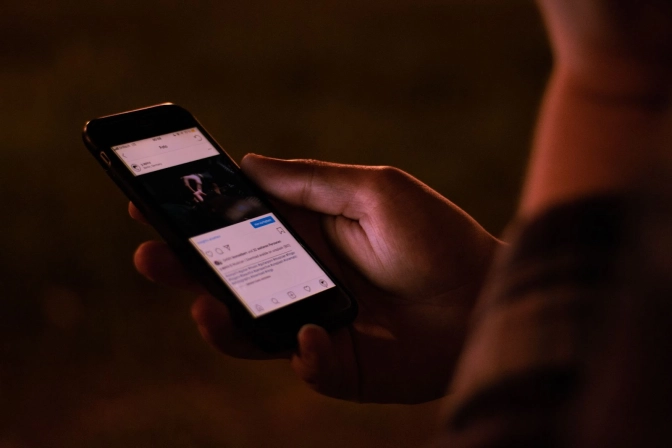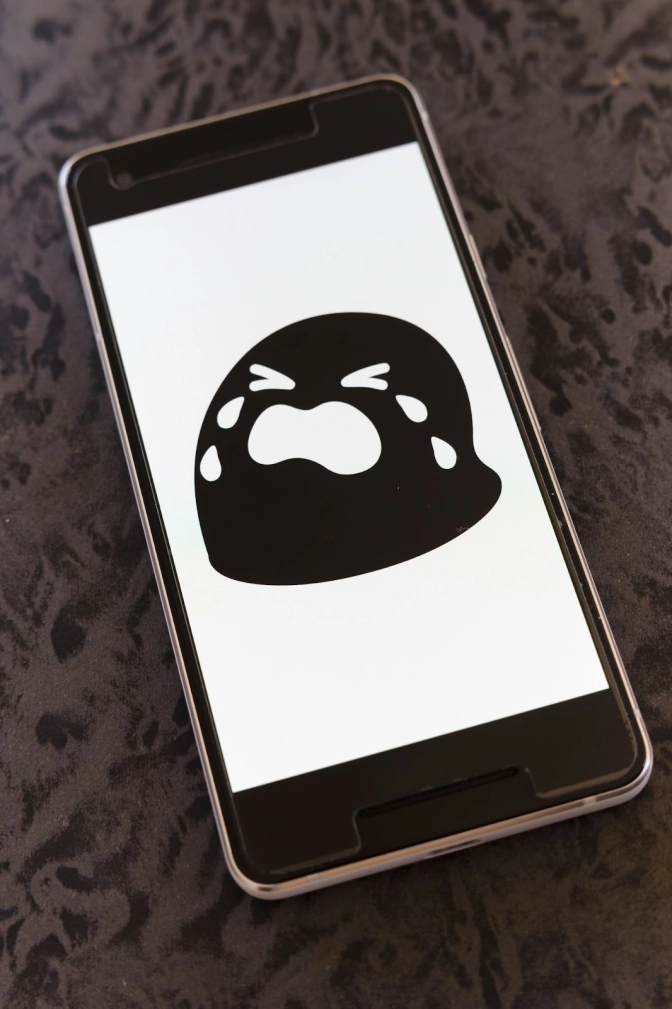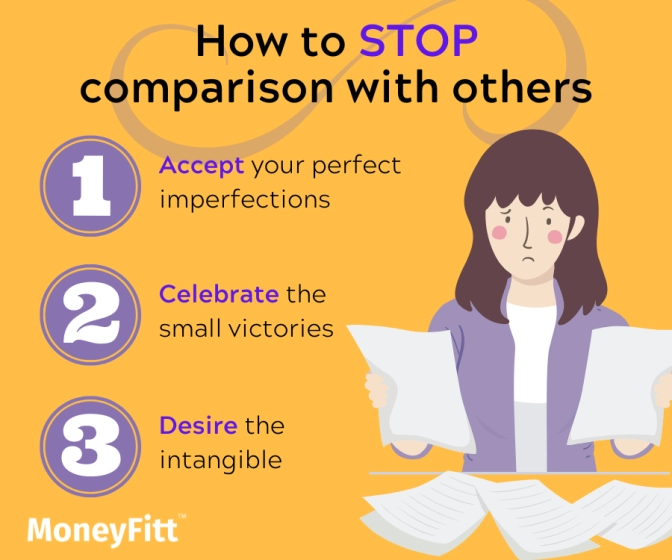Why Comparing Yourself to Others May Not Be Best for You
How an innocuous comparison to others (in particular, influencers) may just be ruining your confidence and self-worth
- Influencers may not be living the perfect lives they portray on social media. Beyond all that glitter, influencers may be leading lifestyles that are detrimental to mental wellness as they work long hours to create content that is subjected to public criticism and opinion.
- Comparison can be good and used as motivation to grow and improve, but the pitfalls outweigh its benefits.
- You can halt the negative comparison by getting to know yourself better, being empathetic to others, and engaging in meaningful activities.
We use social media as a platform to compare our lifestyles to others. It is a scale to calculate our success level and a measure to gauge how far we have come in life. We are bombarded by a cascade of online posts. These depict influencers leading out fashionable, chic lifestyles. It is easy to place our sense of self-esteem and contentment in the hands of these influencers. We derive joy and fulfilment indirectly from their social media posts and activities.
This online upwards social comparison cannot be healthy for our own personal self-image. Studies have suggested that taking comparisons online may result in a negative self-image. We get more depressed when we compare ourselves to our online counterparts.

Our devices have gradually become tools we use to compare ourselves to the online community. Social media algorithms are designed to prioritise content relevant to our searches in our user feeds. The algorithms deliver glamorous content to our news feeds the more we search up these lifestyles. Our phone has become a mirror, reflecting our flaws and amplifying our shortcomings. Even though we are starting to become aware of the effects our online habits have on us, old habits die hard. It is difficult to stop scrolling and comparing our current lifestyle to that of the influencers.
What then can we do to stop comparing our lifestyles to others'? It is critical to understand that we have to look inward to embrace our unique individualities, strengths and weaknesses. This will minimise the comparison that takes place. Let’s take a look at the lifestyles influencers lead and consider their lives beyond the glamour.

The Real Lives of Influencers
Social media influencers have an enormous impact on society. We tend to think the best of the influencers due to their massive influence on online culture. Yet, that mindset may narrow our vision greatly. Only a small handful of influencers are really living large, and not everything on social media is as portrayed.
"Comparison is the thief of joy"
Theodore Roosevelt, 26th US President.
1. Influencer Content Is Not a True Reflection of Reality
Many people tend to think that influencer lifestyles are all glamour and glitter. They desire the paid sponsorships, the exciting places and cool people they get to visit and meet. Only a few influencers achieve elusive social strata in the online sphere. To reach those heights, many create their content to suit specific target audiences. Almost every influencer tailors content to portray a perfect image. They do it to support a particular lifestyle or promote products and brands. In reality, the lifestyles they lead may not be as glamorous as seen on social media. Consider the benchmark the next time you compare your lifestyle to influencers. It could be imaginary.
2. Influencers Are Subjected to Backlash
People think influencers lead fabulous lives. They get items and brand products served on silver platters. Their rising popularity has resulted in a rise in aspirations to become influencers. According to a CNBC report, 86% of Gen Z and millennials would start paid social media posts for money. 54% of them said they would become an influencer if given the opportunity.
Online criticism and hateful comments are a blind spot for people with aspirations to become influencers. Influencers invest their entire lives on social media. This exposes them to many haters, trolls and keyboard warriors who judge their online behaviour. Influencers have to deal with cyberbullies on a near-daily basis. You should think twice before entering the influencer community. Are you up to the task?
Influencers may face negative criticism for producing content that promotes their advertisers' values too. The influencer market is getting saturated as the entry barriers are low. As a result, it has diluted the significance of the influencer role. They are mere products of a capitalistic society.
3. Influencers Face Burnout and Mental Wellness Issues Too
Many people do not realise that being an influencer is no different from having a regular job at the end of the day. A lot of pressure and responsibility comes with being an influencer. The amount of hard work, long hours, sweat and tears happening behind the scenes is immense. A social media presence can affect a person’s mental wellness. Since influencers invest huge amounts of their lives into social media, they are prone to social media’s negative effects. Besides dealing with negative comments, several influencers face the risk of burnout. Since their lifestyles in real life do not match up to the ones they act out on social media, there is a stressful and burdensome gap. They even start comparing their current lifestyles to their online personas. As a result, they start to suffer from a negative self-image, and some even fall into depression.

Why Do We Compare?
You may realise that comparing yourself to others is not in your best interest. Yet, it is difficult to erase that habit completely. Comparison is a natural human tendency; it is not necessarily bad. You may argue that comparison can be a good thing despite being a source of psychological anguish. We actually do comparisons all the time:
- We compare our present self to our past self
- We compare the current situation we are facing with experiences in the past
- We compare our breadth of knowledge to others in our field of expertise
Comparison can enable growth. It is a powerful motivational tool to push us to become better versions of ourselves. It can give us feedback to help us form a robust baseline to reach higher standards and performance levels.
The Pitfalls Outweigh the Benefits
However, like most good things in life, comparison comes as a double-edged sword. Comparing our lifestyles to others' can be a source of anxiety and worry. It causes us to doubt ourselves and lose confidence.
In his book entitled ‘The Subtle Art Of Not Giving A F*ck’, author Mark Manson writes about what he calls: the Feedback Loop from Hell. We now live in an age of prevalent consumer culture, perpetuated by the use of social media. When we scroll through the lives we encounter online, we receive negative feedback on our own lifestyles. This reaffirms all the bad thoughts, grumblings and complaints we have always had. As we use social media frequently, we come across more accounts portraying perfect lifestyles. The negative feedback gets louder and drowns everything positive about ourselves. That is the danger we risk when we choose to compare.
Comparison can deter us from trying out experiences that may turn out beneficial to us as well. Let’s take, for example, a friend of yours who is good at a sport or an activity you enjoy. You may see your friend being better than you at that particular activity. By comparison, you may lose interest, convincing yourself that you never enjoyed nor liked that activity in the first place. In the end, you stand to lose the enjoyment and satisfaction of comparing yourself to others.

How to Stop Comparing Yourself to Others
Social media allows us to view our lifestyles with a rose-tinted lens. By comparing ourselves to others, we start to define our successes based on how others perceive us on social media. It will be an uphill battle to stop comparing yourself to other people. But it is not an impossible task. Here is some advice that can help you along the way:

1. Accept Your Perfect Imperfections
The first step to learning how to stop comparing yourself to others is to accept that no one is perfect. In reality, no social profile can ever be a true reflection of an individual’s success. By acknowledging that, there is no longer a dire need to compare how well you are doing in life against other people’s achievements.
At the same time, learn to embrace your faults and even learn to accept them as part of who you are. Learn to love yourself the way you are. You are a unique personality with your own quirks, traits and characteristics. Do not let comparison impede your path to your success. Focus on yourself, discover your strengths and spare yourself the stress.
2. Celebrate the Small Victories
The smallest steps often lead to the greatest achievements. Too often we dismiss our accomplishments, thinking they are too insignificant, too trivial and too banal to be worth celebrating. We undermine ourselves and underestimate our capabilities. Let yourself have the win, no matter how small or unimportant it may seem to be.
Focus on your own achievements, and you will be able to celebrate the successes of others more. This is a good sign that you are developing empathy for others, which is a powerful tool in your arsenal to stop comparing yourself to others.
3. Desire the Intangible
It helps to shift the search to finding significance and meaning in your life. When your personal life is empty of meaning, it is easy to fall into the pitfall of looking on others for it.
Engage in social or volunteer work; contribute and give back to society; lend a helping hand to those in need. As you find more meaningful activities, you will discover so much more about yourself. Find the values you adhere to and the things you enjoy the most. You will discover a greater sense of contentment, more than you can ever find on social media.
Conclusion
Comparing your lifestyle to others is like consuming empty calories. You gain all the weight and stress, minus the nutritional value and benefits. In essence, it is a needless act. You are pitting yourself against a veneer of perfection when you compare. Only by being aware and mindful of the detrimental effects of comparison can you stop and start leading your best life. So the next time you have an urge to use someone as a yardstick to gauge your self-worth, use this article and decide whether that is indeed the best decision for you to make.
COMPARING YOURSELF TO OTHERS. COMPLETED. ✅
Sources:
- https://authorjoannereed.net/stop-comparing-yourself-with-others/
- https://www.tonyrobbins.com/personal-growth/how-to-stop-comparing-yourself-to-others/
- https://www.usatoday.com/story/news/nation-now/2016/11/30/comparing-yourself-facebook-friends-recipe-depression/94633734/
- https://www.psychologytoday.com/sg/blog/talking-about-trauma/202110/social-media-affects-influencers-mental-health
- https://wp.nyu.edu/mind/2021/02/27/why-do-we-compare-ourselves-to-others/
- https://www.theguardian.com/money/2019/mar/17/instagram-social-media-influencers-reality
- https://www.cnbc.com/2019/11/08/study-young-people-want-to-be-paid-influencers.html
- https://markmanson.net/feedback-loop-from-hell
